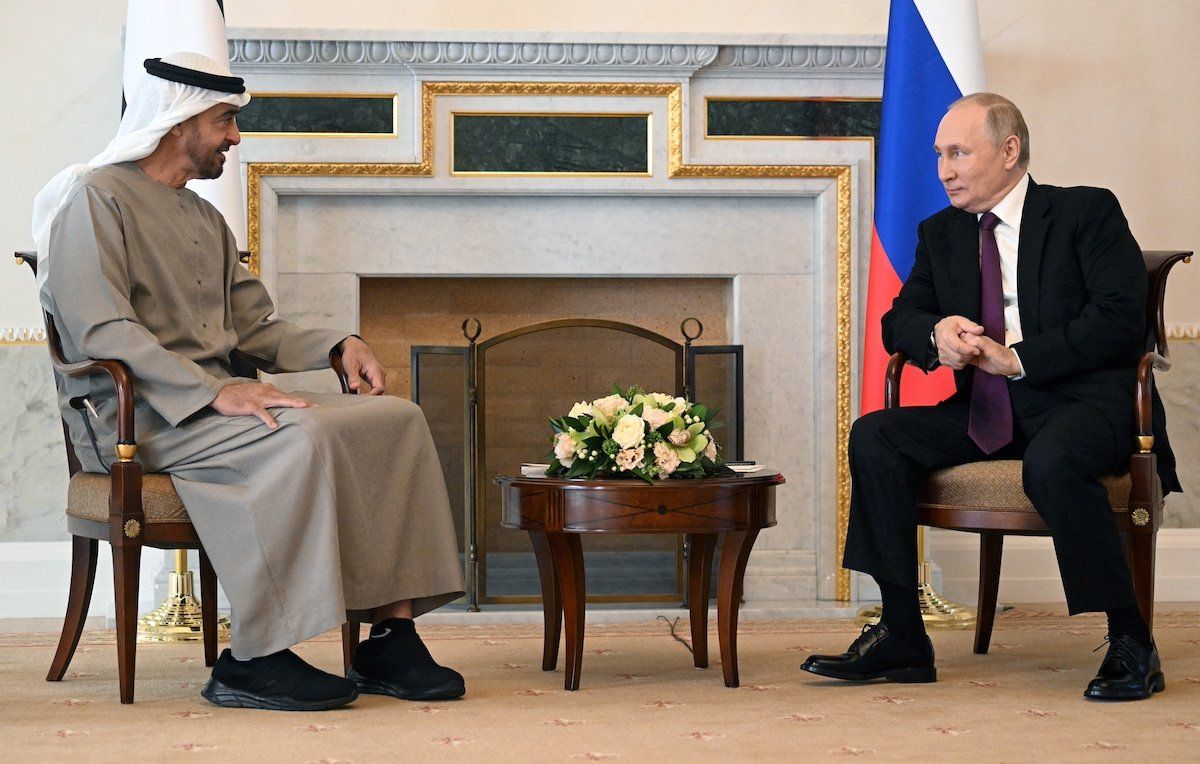Vladimir Putin is on the move Wednesday, visiting Saudi Arabia and the UAE before returning home to host Iranian President Ibrahim Raisi in Moscow a day later.
The context: The Gulf monarchies have largely bucked Western pressure to isolate Moscow over Russia’s invasion of Ukraine. Iran, meanwhile, is a crucial supplier of drones and other arms for Putin’s war.
What’s on the agenda?
First, oil. Russia and the wider OPEC+ group of leading producers agreed last week to cut output by more than 2 million barrels daily to prop up prices as concerns about a sluggish global economy weigh on demand for oil. After a muted market reaction, Moscow on Tuesday proposed even more cuts. Saudi Arabia and Russia are the top two producers in the OPEC+ group – for any strategies to have credibility with the market, Putin and Saudi Crown Prince Mohamed bin Salman need to be on the same page.
Second, Ukraine. With Western support for Ukraine looking shakier, Putin doubtless wants to lobby Saudi Arabia on his vision of what a settlement might look like. Recall that in August Riyadh hosted a 40-country Ukraine peace summit – and Russia wasn’t invited.
Third, Gaza. As we explained last month, a little Middle East instability suits Putin just fine – it distracts attention from Ukraine, complicates life for the US, and could even open avenues for Russia to heroically mediate, given its ties to both Israel and Hamas.
But with Putin’s forces deeply enmeshed in Syria, a wider regional war that draws in Iran and Syria could be a nightmare for him. As Israel trades crossborder shots with Lebanon-based Hezbollah while US forces see growing tit-for-tats with other Iran-backed militias in the region, Putin will want to understand exactly where the red lines are for Riyadh and Tehran.
